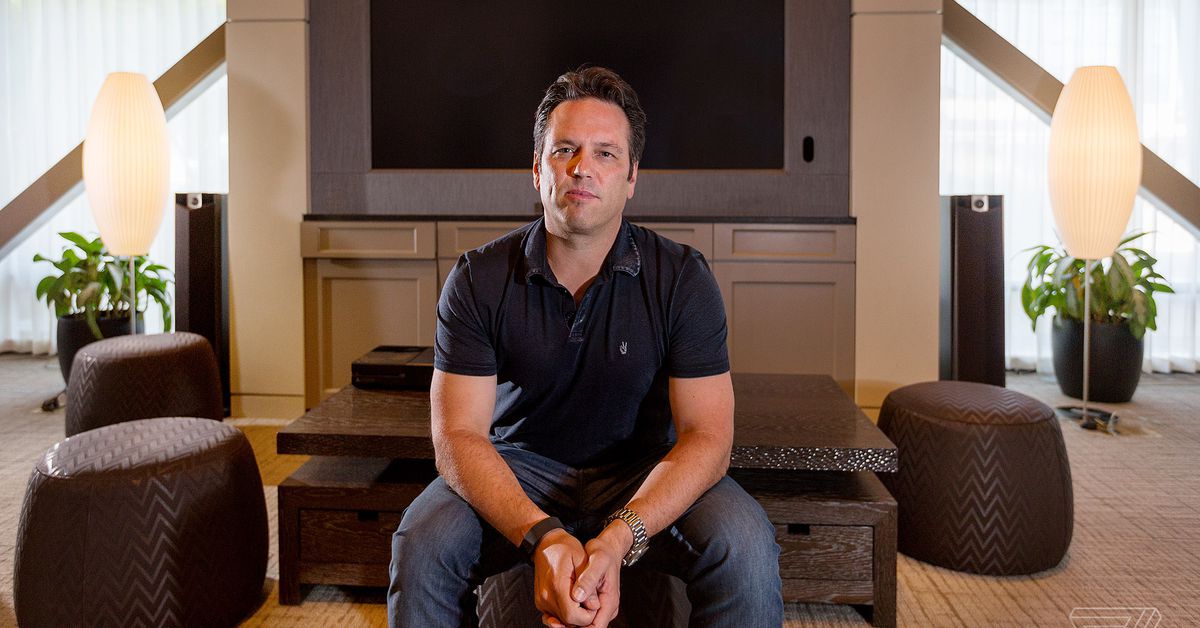Humble Games layoffs leave indie studios in a state of uncertainty
Image: Squid Shock StudiosHumble Games “restructured” and reportedly laid off its 36-person team last week. The publisher, which is part of the IGN-owned Humble Bundle, started helping developers release games in 2017 and published notable games like Slay the...
/cdn.vox-cdn.com/uploads/chorus_asset/file/25555644/ss_bb71f73647e517256b72708c60a3649e1470931a.jpg)
Humble Games “restructured” and reportedly laid off its 36-person team last week. The publisher, which is part of the IGN-owned Humble Bundle, started helping developers release games in 2017 and published notable games like Slay the Spire and Signalis. The resulting fallout from the layoffs has left developers working with the publisher uncertain about many plans for future games, leaving their console ports in jeopardy.
Amir Fassihi, studio director of Dead Mage, the team behind the in-development Wizard of Legend 2, is worried that the restructuring could impact their project. “We do not want to make any changes,” Fassihi tells The Verge. “However, we’re unsure what changes will be forced on us because everyone in the publisher we collaborated with in the past 2.5 years is suddenly gone.” Now, Dead Mage has to “wait and hope that the new team will deliver the various publishing services that we expected from Humble Games.”
The “new team,” according to a report from Aftermath and three of the developers I spoke with, is the Powell Group, a video game consulting company. The Powell Group and Humble Games didn’t reply to requests for comment. In a post last week, Humble Games didn’t mention the Powell Group’s involvement, only saying that “supporting our development partners and assisting former team members remains our top priority” and that “we are committed to making this transition as smooth as possible for everyone involved.”
Image: Stairway Games
Developers are mostly worried about console ports, which Humble Games seemed to have a major hand in for some of the projects it worked on.
“We are now in a difficult situation when it comes to updating the console ports, as both porting and QA support was tied into our deal with Humble,” Squid Shock Studios, developer of the newly released Bō: Path of the Teal Lotus, said in a post on Monday. (The game is available on PlayStation, Xbox, and Nintendo Switch in addition to Steam.) “We are actively pursuing all available avenues to allow us to roll out updates to console versions, but we regret to say this may take some time to put in place.” The studio is also planning to launch a Patreon.
Coral Island developer Stairway Games said last week that the impact of the restructuring “remains uncertain for all things related to consoles.” The game is out on Xbox Series X / S, PlayStation 5, and Steam, with a Switch port in the works. The team has a hotfix for its 1.1 update “nearing release” on Steam, but “we have no idea how to get this update out to other platform players as we don’t have the backend permission on console platforms to push updates out,” Stairway said. “We only have access to the Steam backend.” Stairway is offering Kickstarter backers who are still waiting for the Switch release the option to get a Steam key instead.
“Changing publishers would be an extremely uphill battle”
Even if developers wanted to make a change from Humble Games as a result of the restructuring, that might be difficult. “To the best of my understanding, Humble Games is fulfilling their contractual obligations to us, so changing publishers would be an extremely uphill battle,” says Matthew Taylor of Rolling Hills developer Catch & Release.
Not every studio appears to have been significantly impacted, and things do seem to be improving for developers since the restructuring. Cody Greenhalge, technical director at #Blud developer Exit 73 Studios, tells The Verge that the Powell Group has “worked well with us and we are hopeful our game won’t have any long lasting effects from this ordeal.”
Taylor says that the Powell Group has set Catch & Release up with a new release manager, producer, and back catalog specialist. “It’s still too early to know how efficiently all these new folks can work together and get onboarded quickly, but in the case of our game we only need someone to help us get new updates to Microsoft and manage discounts and events, so I think we’ll be OK,” Taylor says. “If we were working on a game still in development or having very recently released, I’d be way more stressed.”
Despite the uncertainties, Humble Games spokesperson Michael Brown said to Polygon that “nothing has changed and no developers have had to change their porting plans; every project is moving ahead.” Brown added that “when people see that the new team at Humble Games was brought in to improve operations and support levels for all the developers, all concerns will be laid to rest.”
Even if things are slowly improving, the situation has been messy, leaving developers unsure of how they’ll move forward with their games. “The layoff of the whole Humble team has been the strangest thing I have seen in my 20 years of experience working,” says Fassihi. “The fact that nothing was shared with us beforehand, and we had to read this in the news, makes it even worse.”

 KickT
KickT 































